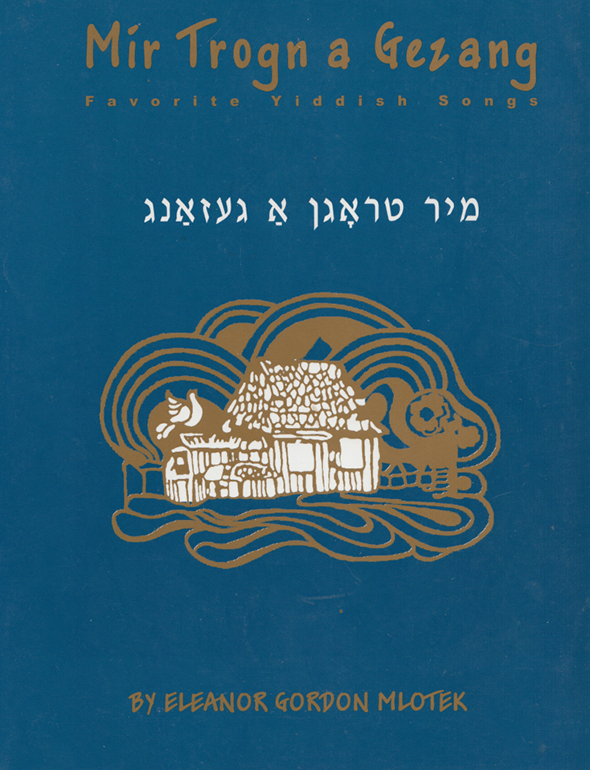This song was popular in the 1930’s in Poland and the United States. Published by Mikhl Gelbart in 1938.

Around the fire
we sing songs.
The night is dear
no one is getting tired.
And should the fire
go out,
heaven will light us
with its stars.
So crown your heads
with wreaths of flowers –
around the fire
we’ll dance happily.
Because dance and song
is our life,
and afterwards, in sleep,
our dreams will soar.
Arum dem fayer
Mir zingen lider,
Di nakht iz tayer,
Men vert nit mider.
Un zol der fayer
Farloshn vern
Shaynt oyf der himl
Mit zayne shtern.
To kroynt di kep
Mit blumen-krantsn —
Arum dem fayer
Mir’n freylekh tantsn.
Vayl tants un lid
lz undzer lebn,
Dernokh in shlof —
Khaloymes shvebn.
אַרום דעם פֿײַער
מיר זינגען לידער,
די נאַכט איז טײַער,
מען װערט ניט מידער.
און זאָל דער פֿײַער
פֿאַרלאַשן װערן,
שײַנט אױף דער הימל
מיט זײַנע שטערן.
טאָ קרױנט די קעפּ
מיט בלומען-קראַנצן —
אַרום דעם פֿײַער
מיר’ן פֿרײלעך טאַנצן,
װײַל טאַנץ און ליד
איז אונדזער לעבן,
דערנאָך אין שלאָף —
חלומות שװעבן.
Song Title: Arum Dem Fayer

First published in 1972, Mir Trogn A Gezang: Favorite Yiddish Songs was reprinted six more times (in 1977, 1982, 1985, 1987, 1988, 2000) due to popular demand. The songs in this anthology represent a sampling of beloved folk and well-known Yiddish songs, many of which are scattered in various song collections; some appear in very rare and inaccessible collections; and some were never before published. Folk songs comprise about a third of this volume and were selected mainly on the basis of popularity and sometimes for their historic significance. Needless to say, they are only representative of the vast, rich treasure of Yiddish folk material. The selection was made not only on the basis of personal preference, but in the knowledge they are favorites of many who sing these songs. Most of the songs represent the repertoire that was sung at Yiddish summer camps, May 1st demonstrations and at social gatherings. Many songs were introduced to American Jewry by Jewish immigrants who came to the United States after World War II, for whom these songs had been favorites in Poland and other East European communities destroyed by the Nazis.